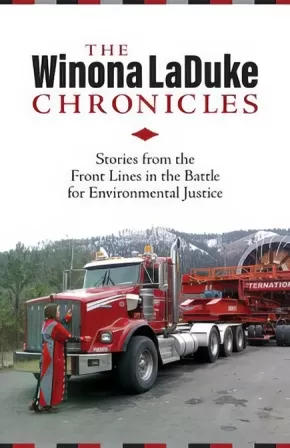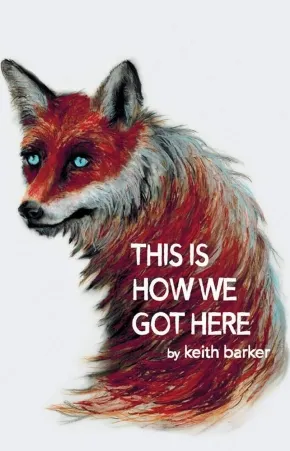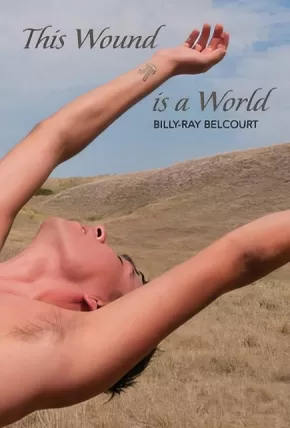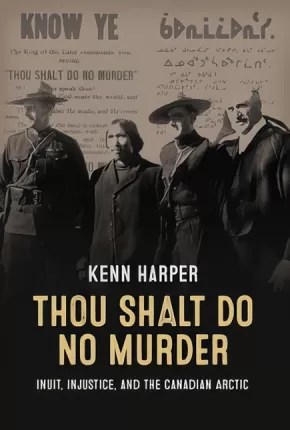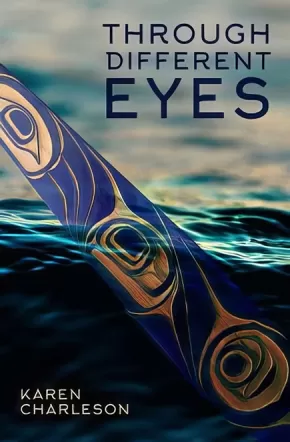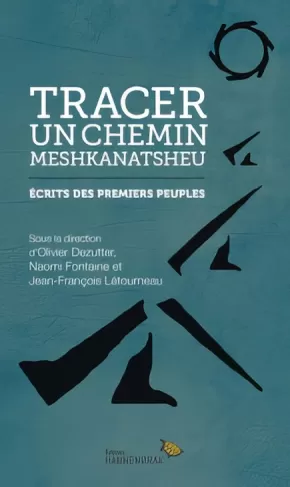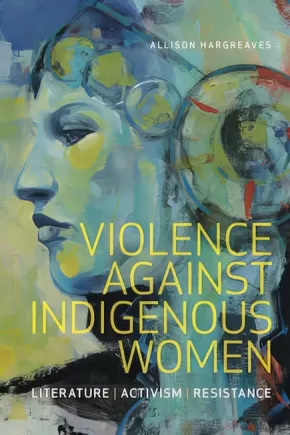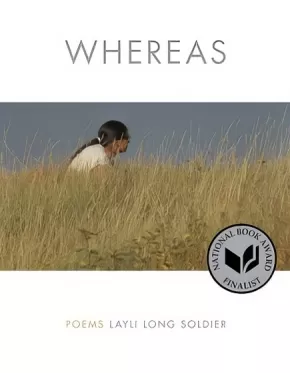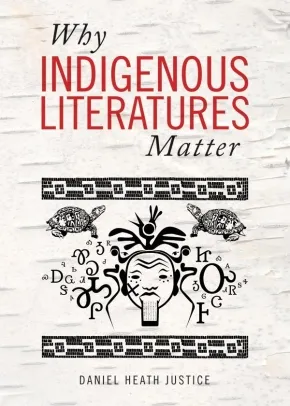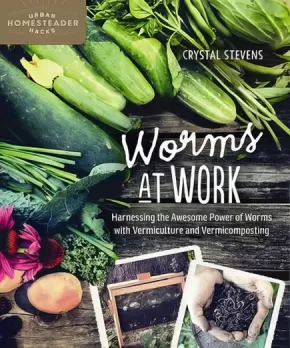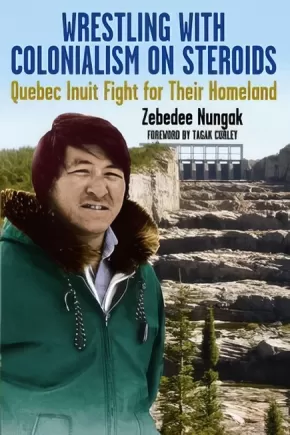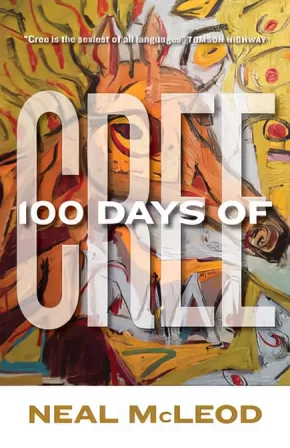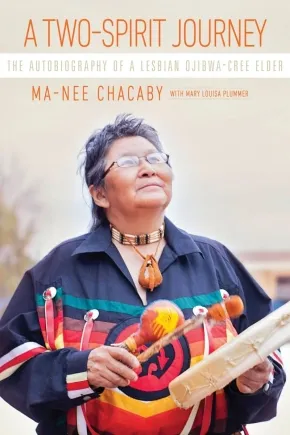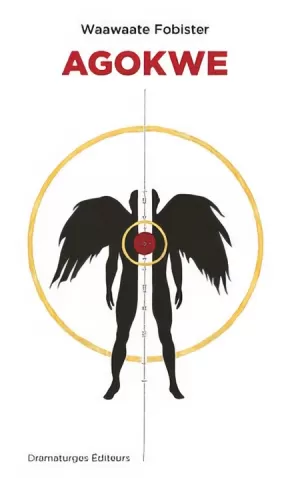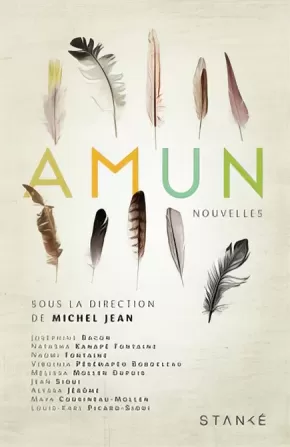Adult Book
Synopsis:
Chronicles is a major work, a collection of current, pressing and inspirational stories of Indigenous communities from the Canadian subarctic to the heart of Dine Bii Kaya, Navajo Nation. Chronicles is a book literally risen from the ashes—beginning in 2008 after her home burned to the ground—and collectively is an accounting of Winona’s personal path of recovery, finding strength and resilience in the writing itself as well as in her work. Long awaited, Chronicles is a labour of love, a tribute to those who have passed on and those yet to arrive.
Reviews
“Winona LaDuke’s latest book reads like a prayer. These are holy words— inspirational stories taken straight from the heart of indigenous communities throughout the world…(Chronicles) is lyrical, instructional, and infused with wry humor when the weight of the message becomes unbearable…LaDuke provides a roadmap through tribal nations’ belief systems; offering a spiritual compass and invaluable insight into the relationship of prophesy to the realities of climate change, economic collapse, food scarcity and basic human rights.” — Huffington Post
Educator Information
Recommended for students in grades 9 - 12, as well as those at a college/university level, for courses in science, environmental science, and social justice.
Additional Information
310 pages | 6.00" x 9.00"
Synopsis:
Simultaneously heartbreaking and heartwarming, This is How We Got Here follows a close-knit family as they deal with an unexpected loss. A mother, father, aunt, and uncle must learn how to move forward after the trauma and re-learn how to interact with one another with forgiveness, humour, and love.
It’s been a year since Paul and Lucille’s son Craig died by suicide, and their once-solid family bonds are starting to break down. While the now-separated couple tries to honour their son, Lucille’s sister Liset and her husband Jim refuse to discuss their nephew. The ties that keep the four together as sisters, best friends, and spouses are strained by grief and guilt… until a visit from a fox changes everything.
Reviews
“While the material of This is How We Got Here is deep, the show didn’t leave me feeling anything dark. Instead, I was happy to have experienced the talent of everyone involved, and to have gained perspective on what I felt were honest and true reactions to the tragedy of suicide.” — Jeff Kerr, Mooney on Theatre
Additional Information
104 pages | 5.40" x 8.35" | Paperback
Synopsis:
Part manifesto, part memoir, This Wound is a World is an invitation to “cut a hole in the sky to world inside.” Billy-Ray Belcourt issues a call to turn to love and sex to understand how Indigenous peoples shoulder sadness and pain like theirs without giving up on the future. His poems upset genre and play with form, scavenging for a decolonial kind of heaven where “everyone is at least a little gay.”
Awards
- 2018 Griffin Poetry Prize
- 2018 Indigenous Voices Award - Most Significant Work of Poetry in English
Reviews
"In This Wound is a World, love answers heartbreak, “history lays itself bare” (42) and a world glimmering with decolonial love and queer, Indigenous possibilities is split open. This is poetry at its brightest. It is electric, profound, necessary work. Belcourt bends genre, challenging the cage of colonialism through a poetics of intimacy. It is a collection unafraid to ask questions, exploring grief, desire, queer sexuality and Indigeneity with tender honesty. Belcourt asks us to consider the ways Indigenous bodies can be simultaneously unbound and “rendered again,” (40) how worlds can be made and unmade. These are poems to be returned to again and again with reverence." - PRISM International
Additional Information
64 pages | 6.00" x 9.00"
Synopsis:
High Arctic, 1920: Three Inuit men delivered justice to an abusive Newfoundland trader.
This is the story of fur trade rivalry and duplicity, isolation and abandonment, greed and madness, and a struggle for the affections of an Inuit woman during a time of major social change in the High Arctic.
A show trial was held in Pond Inlet in 1923 that marked an end to the Inuit traditional way of life and ushered in an era in which Inuit autonomy was supplanted by dependence on traders and police, and later missionaries.
Kenn Harper draws on a combination of Inuit oral history, archival research, and his own knowledge acquired through 50 years in the Arctic to create a compelling story of justice and injustice in the far north.
Reviews
"While the amount of background information sometimes threatens to overwhelm the actual trial, this material is so interesting — and Harper's writing so vibrant — that it does not impede the narrative, or preclude thought-provoking questions about Canada's long-standing and ongoing negative treatment of the Inuit."— Quill & Quire
Additional Information
400 pages | 6.00" x 9.00" | 70 photos | Bibliography | Index
Synopsis:
Everyone knows everyone's business in the small fishing community of Kitsum. So when young Brenda Joe fears she might be pregnant, she also worries that rumours will spread quickly. Things look up when Brenda's favourite aunt, Monica returns to Kitsum for Christmas, although she is preoccupied with her own relationship problems. It's become clear to her that the white man she's been living with in Vancouver sees her as his "Indian Princess," his own exotic arm candy, and she's had enough. When she learns about Brenda's secret relationship with a local man, Monica is appalled and goes to set him straight. But is there more to this attractive loner and his hard-partying relations than meets the eye? Come spring, amid their secrets and betrayals, each family member will be tempted down to the water to collect herring eggs from artfully placed hemlock branches. The question is, will they be able to face one another?
Educator Information
Recommended in the Canadian Indigenous Books for Schools 2019-2020 resource list for grades 9 to 12 for English Language Arts.
This work contains topics of substance abuse, sexuality, adultery, and child neglect that are not the focus of the story but still a part of it.
Additional Information
288 pages | 5.25" x 8.00"
Authenticity Note: Karen Charleson is a member of the House of Kinquashtakumlth and the Hesquiaht First Nation through marriage. We have applied the Authentic Indigenous Text label for this reason; however, readers will need to determine if this work is authentic for their purposes.
Synopsis:
Dans cette anthologie, les voix des Premiers Peuples prennent un chemin pour se faire entendre, celui de l’écriture. Choisis pour l’émotion, la curiosité ou la réflexion qu’ils suscitent chez le lecteur, les textes ont été écrits par des femmes et des hommes de différentes générations et de diverses nations et communautés, qui, pour la plupart, ont décidé d’écrire en français.
Sous des formes littéraires variées (poésie, théâtre, roman, nouvelle, chanson, manifeste) résonne d’une manière singulière l’écho d’être au monde, de traverser le cycle de la vie, de grandir au sein du territoire, de vivre en relation avec les membres de sa famille, de son clan et avec les autres. Chaque texte constitue une trace d’un travail de mémoire, d’affirmation, de libération et de partage par l’écriture et la création.
Sous la direction d'Olivier Dezutter, Naomi Fontaine et Jean-François Létourneau.
Additional Information
Anthologie
Synopsis:
Violence against Indigenous women in Canada is an ongoing crisis, with roots deep in the nation’s colonial history. Despite numerous policies and programs developed to address the issue, Indigenous women continue to be targeted for violence at disproportionate rates. What insights can literature contribute where dominant anti-violence initiatives have failed? Centring the voices of contemporary Indigenous women writers, this book argues for the important role that literature and storytelling can play in response to gendered colonial violence.
Indigenous communities have been organizing against violence since newcomers first arrived, but the cases of missing and murdered women have only recently garnered broad public attention. Violence Against Indigenous Women joins the conversation by analyzing the socially interventionist work of Indigenous women poets, playwrights, filmmakers, and fiction-writers. Organized as a series of case studies that pair literary interventions with recent sites of activism and policy-critique, the book puts literature in dialogue with anti-violence debate to illuminate new pathways toward action.
With the advent of provincial and national inquiries into missing and murdered Indigenous women and girls, a larger public conversation is now underway. Indigenous women’s literature is a critical site of knowledge-making and critique. Violence Against Indigenous Women provides a foundation for reading this literature in the context of Indigenous feminist scholarship and activism and the ongoing intellectual history of Indigenous women’s resistance.
Reviews
“This book makes an important – indeed, urgent – contribution to knowledge about violence against Indigenous women that ought to become required reading for politicians, activists, policy-makers, scholars, writers, and artists engaged in responding to this ongoing crisis.”
— Amber Dean, McMaster University, author of Remembering Vancouver’s Disappeared Women: Settler Colonialism and the Difficulty of Inheritance
"Hargreaves ... examines how stories of individual tragedies have been memorialized in venues such as human rights reports, poems, films, and plays. She convincingly explains that statistics and research projects produced with the best intentions may serve to reinforce the very colonial power dynamics that prevent the emergence of transformative solutions in the struggle to end violence against Indigenous women. ... For those in the field of comparative narrative criticism, it’s a work sure to inspire much discussion, debate, and reflection."
— Publisher's Weekly
Educator Information
This book would be useful for Indigenous Studies, Women's Studies, Literary Criticism, and Canadian Literature courses, or courses where activism is a key theme.
Additional Information
296 pages | 6.00" x 9.00"
Synopsis:
WHEREAS her birth signaled the responsibility as mother to teach what it is to be Lakota therein the question: What did I know about being Lakota? Signaled panic, blood rush my embarrassment. What did I know of our language but pieces? Would I teach her to be pieces? Until a friend comforted, Don’t worry, you and your daughter will learn together. Today she stood sunlight on her shoulders lean and straight to share a song in Diné, her father’s language. To sing she motions simultaneously with her hands; I watch her be in multiple musics. —from “WHEREAS Statements”
WHEREAS confronts the coercive language of the United States government in its responses, treaties, and apologies to Native American peoples and tribes, and reflects that language in its officiousness and duplicity back on its perpetrators. Through a virtuosic array of short lyrics, prose poems, longer narrative sequences, resolutions, and disclaimers, Layli Long Soldier has created a brilliantly innovative text to examine histories, landscapes, her own writing, and her predicament inside national affiliations. “I am,” she writes, “a citizen of the United States and an enrolled member of the Oglala Sioux Tribe, meaning I am a citizen of the Oglala Lakota Nation—and in this dual citizenship I must work, I must eat, I must art, I must mother, I must friend, I must listen, I must observe, constantly I must live.” This strident, plaintive book introduces a major new voice in contemporary literature.
Additional Information
114 pages | 7.04" x 8.84"
Synopsis:
Part survey of the field of Indigenous literary studies, part cultural history, and part literary polemic, Why Indigenous Literatures Matter asserts the vital significance of literary expression to the political, creative, and intellectual efforts of Indigenous peoples today. In considering the connections between literature and lived experience, this book contemplates four key questions at the heart of Indigenous kinship traditions: How do we learn to be human? How do we become good relatives? How do we become good ancestors? How do we learn to live together? Blending personal narrative and broader historical and cultural analysis with close readings of key creative and critical texts, Justice argues that Indigenous writers engage with these questions in part to challenge settler-colonial policies and practices that have targeted Indigenous connections to land, history, family, and self. More importantly, Indigenous writers imaginatively engage the many ways that communities and individuals have sought to nurture these relationships and project them into the future.
This provocative volume challenges readers to critically consider and rethink their assumptions about Indigenous literature, history, and politics while never forgetting the emotional connections of our shared humanity and the power of story to effect personal and social change. Written with a generalist reader firmly in mind, but addressing issues of interest to specialists in the field, this book welcomes new audiences to Indigenous literary studies while offering more seasoned readers a renewed appreciation for these transformative literary traditions.
Awards
- 2019 PROSE Award for Literature
Synopsis:
Fertilize your garden naturally--a guide to growing your plants in healthy, happy soil
People want to know where their food comes from, who grows it and how it is grown. Interest in permaculture, backyard composting, and gardening in general, is growing. So how does the budding gardener ensure that his soil is healthy and nutrient-rich enough to support all the produce he intends to grow? Here's a hint--think worms! Vermiculture is the healthiest and most cost-effective way to ensure that your soil receives the nourishment that it needs. A simple vermicompost bin can produce the completely natural , nutrient-rich fertilizer that can be used to boost soil health and, in turn, increase your crop yield.
In true Crystal Stevens' fashion, Worms at Work is a practical, easy-to-implement guide to fertilizing your garden naturally. It discusses the vital role worms play in boosting soil health, and the reasons why every gardener should use vermicompost in order to decrease reliance on toxic synthetic fertilizers. Coverage includes:
- Simple designs to build your own vermicompost bin
- Caring for your worms
- Garden applications for your worm castings
- Lesson plans to incorporate vermicomposting into the school science curriculum
- Whether you're tending to a small backyard garden or managing a large farm, Worms at Work can show you how to start vermicomposting today in order to grow healthy plants in healthy, happy soil.
Educator & Series Information
Useful for incorporating vermicomposting into the school science curriculum and school gardens.
This book is part of the Homegrown City Life Series:
You’d like to be self-sufficient, but the space you have available is tighter than your budget. If this sounds familiar, the Homegrown City Life series was created just for you! Authors of this series will help you navigate the wide world of homesteading, regardless of how big (or small!) your space and budget may be. Topics range from cheesemaking to gardening and composting—everything the budding urban homesteader needs to succeed!
Increase your self-reliance
- Take back DIY skills
- Work with the space you have, apartment balcony or suburban backyard
- Learn about fermenting, crafting, growing, preserving, and other skills for the urban homesteader.
Additional Information
224 pages | 7.50" x 9.00"
Synopsis:
For decades, the Inuit of northern Québec were among the most neglected people in Canada. It took The Battle of James Bay, 1971-1975, for the governments in Québec City and Ottawa to wake up to the disgrace.
In this concise, lively account, Zebedee Nungak relates the inside story of how the young Inuit and Cree "Davids" took action when Québec began construction on the giant James Bay hydro project. They fought in court and at the negotiation table for an accord that effectively became Canada's first land-claims agreement. Nungak's account is accompanied by his essays on Nunavik history. Together they provide a fascinating insight into a virtually unknown chapter of Canadian history.
Additional Information
112 pages | 5.00" x 7.50"
Synopsis:
As an Elder once said, "Learn one Cree word a day for 100 days, and emerge a different person."
In 100 Days of Cree, Neal McLeod offers us a portal into another way of understanding the universe--and our place within it--while demonstrating why this funny, vibrant, and sometimes salacious language is "the sexiest of them all" (according to Tomson Highway).
Based on a series of Facebook posts, the 100 short chapters or "days" in the book present a chain of related words, some dealing with the traditional--the buffalo hunt, the seasons--and others cheekily capturing the detritus of modern life--from Internet slang to Johnny Cash songs to Viagra.
The result is both an introduction to the most widely spoken Indigenous language in Canada and the opportunity to see the world, and ourselves, in another way.
Reviews
"The nonfiction book is divided into 100 themes and offers Cree words and English explanations for everything from traditional subjects such as powwows and medicine to modern subjects such as Facebook and Star Wars. It also includes a guide to pronunciation written by Arok Wolvengrey, a linguist and the author of a Cree-English dictionary. 'When we think about indigenous languages, there’s a part of us that thinks they’re dying languages, ' URP publisher Bruce Walsh said. 'And then this manuscript comes in that demonstrates a living, vital language.' McLeod said that he and Wolvengrey worked to keep a balance between traditional usage and modern adaptations. 'To revitalize our languages, we have to do two things: we have to document the classical terminology, because within that terminology are all of our metaphors and idioms; but we also have to think of how to put old words together, to coin words, to describe the contemporary world.'" — Laura Godfrey, Publishers Weekly
Additional Information
325 pages | 5.50" x 7.00"
Synopsis:
A compelling, harrowing, but ultimately uplifting story of resilience and self-discovery.
A Two-Spirit Journey is Ma-Nee Chacaby’s extraordinary account of her life as an Ojibwa-Cree lesbian. From her early, often harrowing memories of life and abuse in a remote Ojibwa community riven by poverty and alcoholism, Chacaby’s story is one of enduring and ultimately overcoming the social, economic, and health legacies of colonialism.
As a child, Chacaby learned spiritual and cultural traditions from her Cree grandmother and trapping, hunting, and bush survival skills from her Ojibwa stepfather. She also suffered physical and sexual abuse by different adults, and in her teen years became alcoholic herself. At twenty, Chacaby moved to Thunder Bay with her children to escape an abusive marriage. Abuse, compounded by racism, continued, but Chacaby found supports to help herself and others. Over the following decades, she achieved sobriety; trained and worked as an alcoholism counsellor; raised her children and fostered many others; learned to live with visual impairment; and came out as a lesbian. In 2013, Chacaby led the first gay pride parade in Thunder Bay.
Ma-Nee Chacaby has emerged from hardship grounded in faith, compassion, humour, and resilience. Her memoir provides unprecedented insights into the challenges still faced by many Indigenous people.
Awards
- 2025 Canada Reads winner
Reviews
“From groundbreaking and controversial AIDS awareness programs in the 1990s to the work she continues to do today, both with her own family and her extended reserve family, her life and this memoir ultimately serve as handbook of hope.” — Lara Rae, Winnipeg Free Press
"A Two-Spirit Journey is a raw and emotional story that doesn’t just show readers the author’s scars. Chacaby bares all in an honest telling of her life that includes flaws, like her struggles with substance abuse and a sometimes rocky path to sobriety. Despite the turmoil, the autobiography does have its uplifting moments and characters. Heartwarming stories of childhood friendships, and most importantly a powerful relationship between the author and her grandmother, weave feelings of optimism and hope into a life that is oftentimes surrounded by darkness.” — Scott Paradis, tbnewswatch.com
“An extraordinary account of an extraordinary life and very highly recommended for community and academic library Contemporary Biography, LGBT, and Native American Studies collections.” — Midwest Book Review
“Activist, survivor, mother, counsellor, Ma-Nee Chacaby recounts her sometimes harrowing life with a calm and steady voice, infused with resilience and compassion. Effectively designed and edited to appeal to both the general public and those engaged in Indigenous studies, A Two-Spirit Journey presents an important story, powerfully told.” — Nik Burton, Rick Walker, and Carolyn Wood, Judges, 2017 Manitoba Book Awards
“The story that Chacaby and Plummer recount is truly an extraordinary one, but it is also one that will resonate with many people whose stories have not been often told. The perspective of a lesbian Ojibwa-Cree elder is invaluable for LGBT Native youth and will be an enriching experience for many others, particularly those who have experienced abuse, disability, poverty, or the effects of colonization.” — Kai Pyle, Studies in American Indian Literatures
Educator Information
This book would be useful for courses in women's studies, social studies, and gender studies. Recommended for students in grade 12 or at a college/university level.
Caution: discussion of physical and sexual abuse.
This resource is also available in French: Un parcours bispirituel: Recit d'une ainee ojibwe-crie lesbienne.
Additional Information
256 pages | 6.00" x 9.00"
Synopsis:
Agokwe, (i.e. : à l'intérieur de l'homme, il y a une femme), est le récit d'un amour impossible entre deux garçons autochtones. Dans cette tragédie contemporaine, adaptée en français et transplantée chez les Atikamekws, le conteur Nanabush utilise la force des mythes anciens pour convoquer une faune de personnages... et les démons qu'ils doivent combattre pour se libérer.
Additional Information
Drama
Synopsis:
Dans la langue innue, amun signifie « rassemblement ». Sous la direction de Michel Jean, écrivain et journaliste innu, ce collectif réunit pour la toute première fois des auteurs autochtones de divers horizons, de différentes nations et générations. Leurs textes de fiction reflètent tantôt l'histoire et les traditions, tantôt la réalité des Premières Nations au Québec et au Canada. Offrant à lire les points de vue d'artistes de renom, ce livre est le théâtre d'un rassemblement et d'une prise de parole qui ne se font que trop rarement.
Avec des nouvelles inédites de Joséphine Bacon, Natasha Kanapé Fontaine, Naomi Fontaine, Virginia Pésémapéo Bordeleau, Melissa Mollen Dupuis, Jean Sioui, Alyssa Jérôme, Maya Cousineau-Mollen, Louis-Karl Picard-Sioui et Michel Jean.
Additional Information
168 Pages | Paperback

